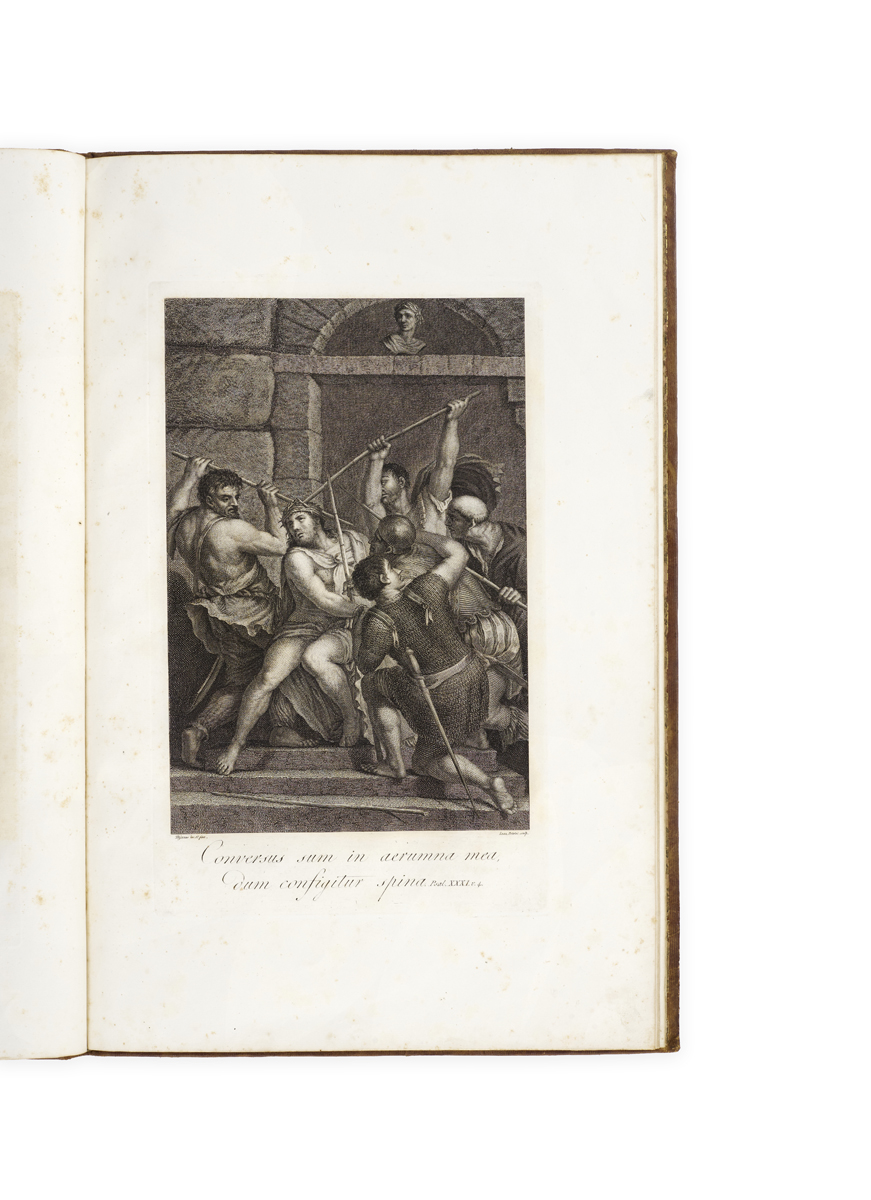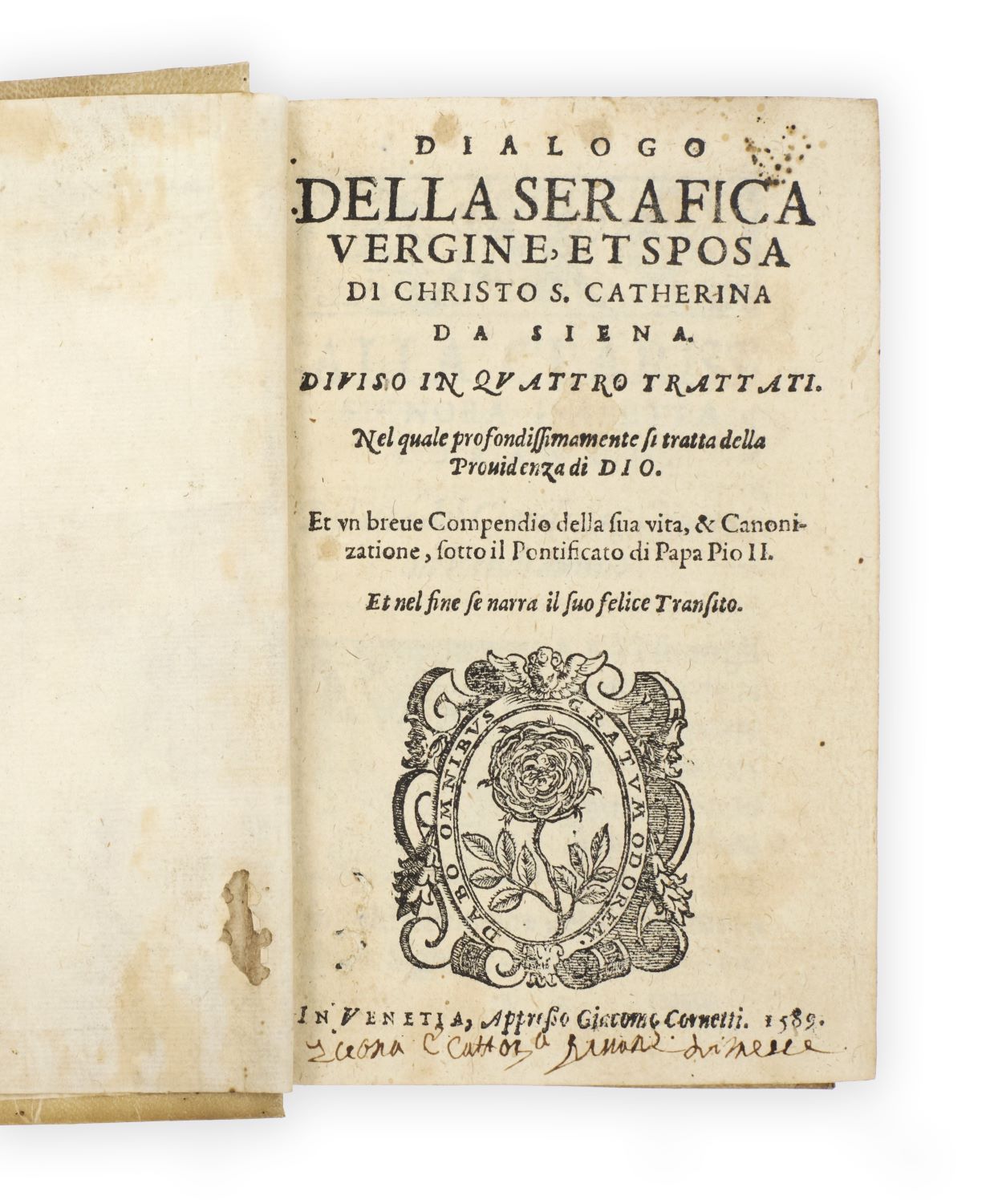


Venerating Napoleon in Unpublished Verse
LUPINACCI, Tomaso.
‘La Napoleoneide in diversi poemetti lirici, e drammatici, composta dal Dr Tomaso Lupinacci del comune di Campana in Calabria Citra.’
[Campana, c. 1810.]
Manuscript on paper, in Italian, 8vo (186 x 130 mm), ff. [74] + blanks, with engraved bust of Napoleon serving as frontispiece; very neatly written in brown ink in a single hand, up to 23 lines per page, a few corrections; dampstaining to lower corner of frontispiece, a little light foxing; very well preserved in contemporary pastepaper wrappers; losses to spine and covers, some worming to upper cover and front flyleaf.

Added to your basket:
‘La Napoleoneide in diversi poemetti lirici, e drammatici, composta dal Dr Tomaso Lupinacci del comune di Campana in Calabria Citra.’
A remarkable collection of seemingly unpublished Italian verse glorifying Napoleon Bonaparte, written by a penniless poet from the town of Campana, in Calabria, southern Italy, during Napoleon’s reign as King of Italy.
The author, one Tomaso Lupinacci, opens with a dedication to Napoleon’s brother-in-law, Joachim-Napoleon (1767–1815), who reigned as King of Naples from 1808 to 1815, describing how his muse inspired him ‘to sing of the glories and virtue of your most august brother-in-law the most invincible Napoleon … to celebrate the triumphs … on the Danube, Reno, Po, in Egypt, and on the Tagus’. The text that follows comprises twenty sonnets, ten ‘dreams’ (sonne), eight canzonettas (e.g. ‘France and Italy’, ‘The eagle and cock’), and six cantatas (including ‘Pallas and Juno’, ‘Diana and Love’, ‘Clio the muse’), and ends with a two-act dramatic operetta, all addressed to Napoleon ‘Emperor of the French and King of Italy’.
Laden with classical allusions, Lupinacci’s verse reveres Napoleon as ‘the hero of this age’, a great warrior and lawmaker, and the ‘new Mars’, worthy of the admiration of ancient gods and goddesses, and includes a sonnet in honour of his birthplace Ajaccio. The extraordinary operetta that closes the manuscript portrays Athena and Mars arguing over ‘who had the primacy in the raising of the great Napoleon and made him victor in all his battles and greatest exploits’, with Astrea (goddess of justice), Juno, Apollo, Peace, Fortune, and Fame also featuring, alongside a chorus of Muses. The opening scene takes place in the Emperor’s apartments in Paris, and it ends with Apollo proclaiming ‘Viva dunque, e sia felice, Il piu grande Imperador’.
Our Calabrian versifier clearly intended to publish his work, since he writes in his dedication that he ‘would have provided this little book with engraved plates necessary for the clarity and expression of the poetic concepts’ were it not for his extreme poverty. Very little is known of Lupinacci. According to OPAC SBN he was the author of Vari poemetti in lode di alcuni personaggi illustri, a twenty-three-page duodecimo published at Naples by Agnello Nobile in 1810, a copy of which is preserved at the Biblioteca della Fondazione Ettore Pomarici Santomasi. We have found no other exemplar of the verses in our manuscript.
Bound in at the front of the volume is a handsome engraved bust of Napoleon with the caption ‘Napoleone primo imperadore de’ Francesi e re d’Italia modellato a Parigi sul vero dal Cavre. Antonio Canova’.

